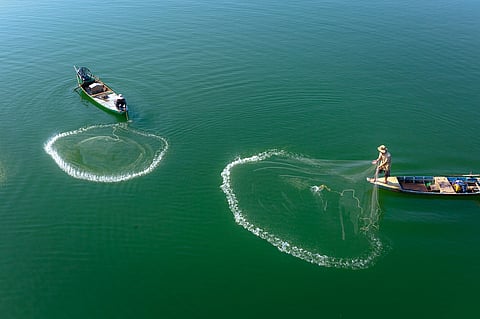European Court Delivers Its Conclusions In The Agricultural And Fisheries Agreements Case
This morning, as part of the appeals filed by the Council of the European Union and the European Commission against the First Instance Tribunal's Decision on the agricultural and fisheries agreements, the Advocate General of the European Court delivered her conclusions, marking a significant milestone in this substantial case.
It is worth noting that these conclusions are not final and are neither a judgment nor a court order but rather an analysis submitted to the Court for the forthcoming deliberations of the judges. Nevertheless, their significance cannot be understated as they have the potential to disrupt the current dynamics, particularly by challenging the positions of the “Polisario" and its supporters on various fronts.
The Advocate General recommends the annulment of the First Instance Tribunal's ruling and the maintenance of the validity of the agricultural agreement between Morocco and the European Union, thereby confirming the legality and sustainability of this agreement in its current terms, including its applicability to products from the Moroccan Sahara.
As for the Fisheries Agreement, the conclusions lean towards a revision of the partnership's foundations in this domain, aiming to transform it into a next-generation partnership that addresses socio-economic development, sustainability, and the preservation of fisheries resources.
Furthermore, the Advocate General rejects the claims of the “Polisario" regarding its alleged representativeness, emphasizing that it is not recognized as the official representative of the people of Western Sahara by the United Nations or the European Union and casting doubt on its actual support within the population. She also asserts that the “Polisario" has not been granted official status as a national liberation movement by international bodies, thus contradicting its assertion of being the sole legitimate representative of the Sahara.
Moreover, the Advocate General confirms the European Union's right to conclude agreements with Morocco covering its Southern provinces, stressing that Morocco is the sole authority empowered to engage in such negotiations, while the “Polisario" lacks the legitimacy to represent these regions internationally.
Finally, she dismisses a request to ban imports of agricultural products from the Southern provinces, thereby paving the way for the continuation of commercial exchanges in this domain.
In summary, these conclusions from the Advocate General shed light on the positions at play and affirm the primacy of the Moroccan Autonomy Initiative, while also highlighting the European nature of the ongoing procedure before the Court of Justice of the European Union, where Morocco is not a party but is supported by the Council of the EU, the European Commission, and several member states.

